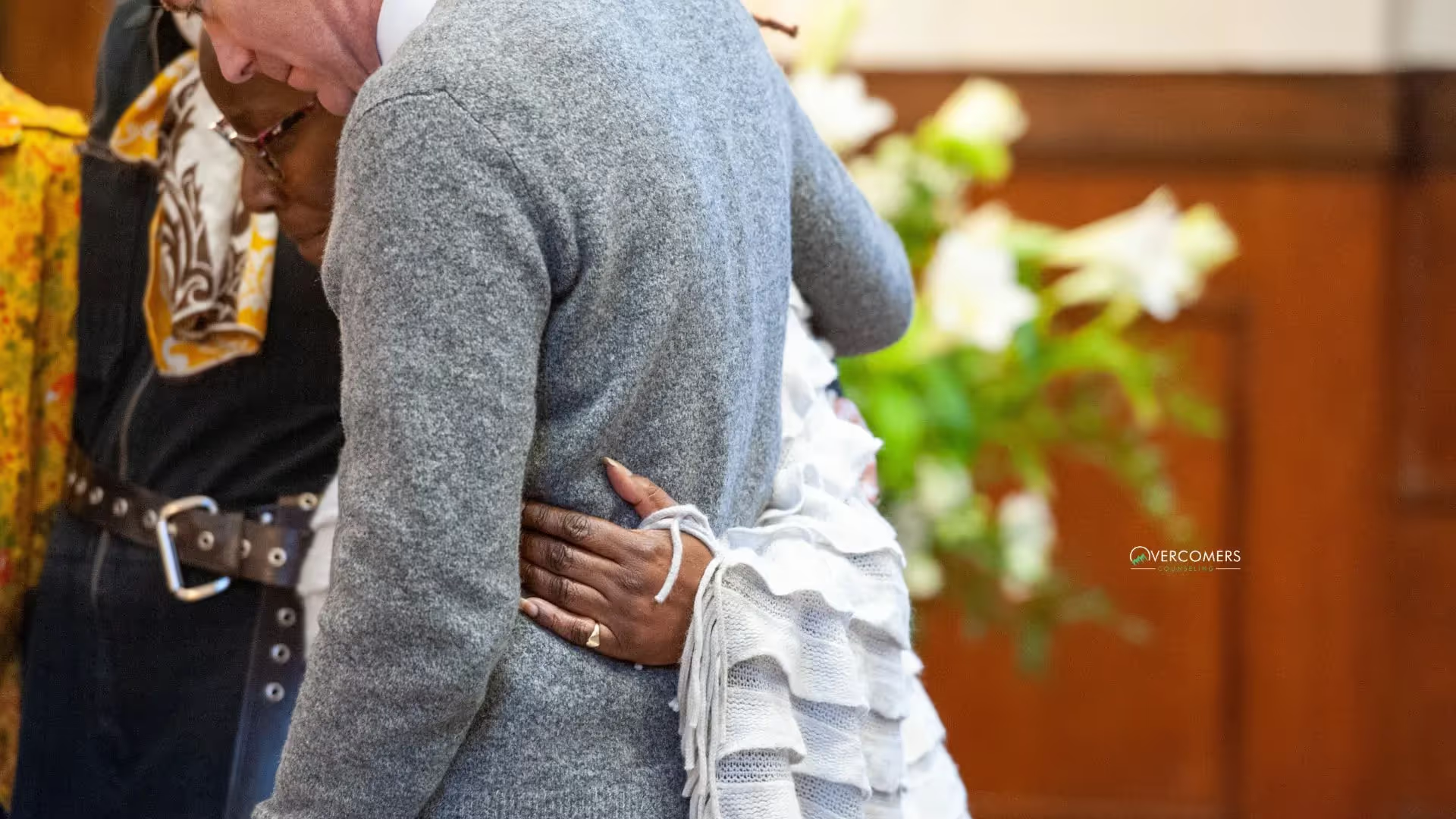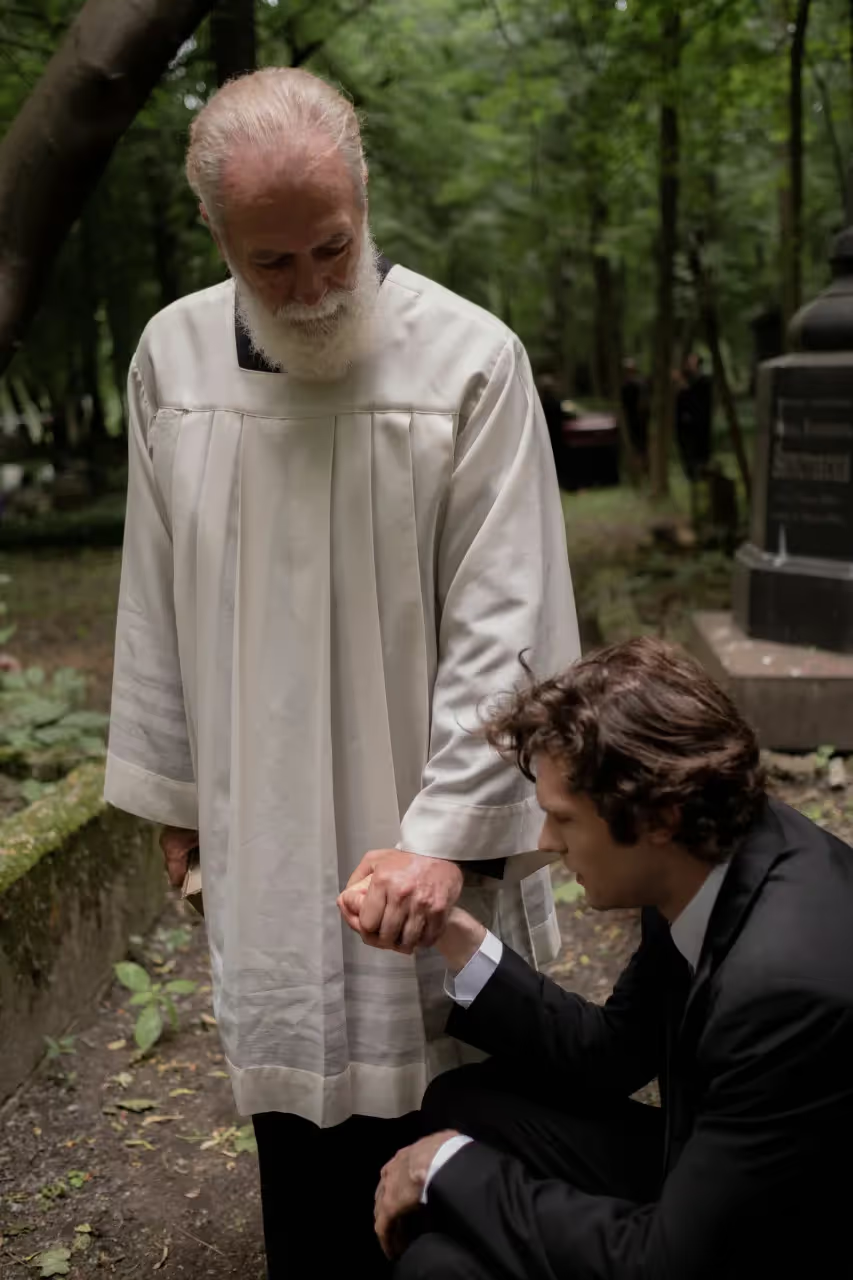Coping with the loss of a close relative, close friend, or partner may be among the toughest challenges many of us will encounter in life. When we lose...

Coping with the loss of a close relative, close friend, or partner may be among the toughest challenges many of us will encounter in life.
When we lose someone particularly close to us, the feelings of grief can intensify, and living on can seem like the most difficult task.
While it's never easy to immediately move on after a painful loss, there are helpful tips you need to learn to live without loved ones and heal through grief.
One key tip is to talk to close friends about your lost loved ones and share your feelings with them.
Avoiding discussions about your lost loved one may interrupt your healing process and lead to delayed or inhibited grief, both of which are unhealthy grieving styles.
Also, you must accept all the painful feelings and emotions that grief brings.
Be it anger, discomfort, confusion, or sorrow; you must acknowledge your feelings, sit with them and allow yourself to feel.
Your feelings are valid so give yourself the grace to feel!
Similarly, joining support groups and relying on supportive family and friends will help you cope with the impacts of grief.
Bereavement support groups and other grief support platforms also provide an opportunity to talk to others with similar experiences and gain insight from them.
Continue this overview to learn five ways you can learn to live without loved ones:
One helpful way to learn to live without loved ones is to get comfortable talking about them.
When in the company of trusted friends and family, you can talk about your relationship with the lost loved one.
The more you share details of past events and go over what happened, the less raw and familiar the story feels.
It also helps you find peace and make meaning of the loss.
If talking seems too much, that's okay! There are other less vocal ways you can express your thoughts and emotions.
You can find comfort in journaling your feelings, writing a song, or making a photo tribute about your lost loved one.
You can share this with trusted friends and family or keep it yourself.
Avoiding conversations about your lost loved one or refusing to address your painful loss can intensify your grief, slow down your healing process and lead to inhibited or delayed grief.
The earlier you come to terms with the situation, the quicker you can begin your healing process.

People grieve in different ways.
For some, grief may manifest as intense feelings of anger, sadness, and fear, and for others, grief may look like isolation and quietness.
In other cases, a griever may vacillate between extremes and have frequent highs and lows.
It is thus essential to accept what grief feels like to you to learn to live without your loved one.
Accepting your emotions can also mean allowing yourself to act them out (provided they don't cause harm to yourself or others).
Don't stop yourself from letting out a loud cry when you feel like it.
There's no set way to feel during grief or set timeline to overcome your loss.
Whether you feel angry or sad, acknowledge that your feelings are normal grief responses and take time to heal properly.
If, however, you have difficulty managing your emotions, it may be helpful to visit a mental health professional or licensed psychologist who can help with emotion management, coping with loss, and finding ways to get back to your daily life.

Researchers suggest that engaging in physical activities can help grievers cope with experiencing loss by reducing anxiety, depression, stress levels, and PTSD (post-traumatic stress disorder).
Thus, a practical way to learn to live without your loved one is to get up and active.
Engaging in physical activities such as walking, martial arts, yoga, running, hiking, and other sports provides an excellent opportunity to release stress, relax, form new friendships, and improve overall well-being.
Similarly, engaging in physical activities during grief has several health benefits, including increased muscle strength, improved memory, weight management, better mental health, improved sleep quality, lower blood pressure, and improved heart health.
Working on yourself after experiencing a loss helps you regain your sense of self and self-confidence and gradually get back to your "normal" life.
Following a significant loss, It may take a long while to learn how to live without your loved one and adjust to the new normal.
Thus, it is essential to surround yourself with family and friends that can support you and help you cope with your grief.
As families rely on each member during grief, they can be intentional about providing support to one another.
Companionship during grief helps you regain a sense of control, reduces feelings of loneliness, and allows you to connect with others.
Soon, time will pass, and you'll realize you have made lots of new memories!
If, however, you didn't have close friends or family preceding your loss, you can rely on therapists, grief counselors, faith leaders, and bereavement support groups for support.
You can also join new clubs, explore your interests, try out new things, endeavor to make new friends, or change your location.
Losing a loved one can be incredibly difficult to handle alone, so endeavor to seek support from trusted people.
Isolating yourself can increase your stress levels, affect your health and make it more difficult to heal.
Grieving the loss of your loved ones doesn't mean you have to forget about them or the legacy they left behind.
You can choose to grieve your loss while actively preserving cherished memories of your loved one.
Doing this helps you honor your special bond in a way that feels right to you and ultimately helps you learn to live without loved ones.
You can honor your lost loved one by planting a tree, participating in charity, raising a fund for a cause special to your loved one, or giving back to their community in their name.
Also, whenever you remember your loved ones, you can write letters to them.
You can include your feelings and all the things you want to say to their faces.
Gratitude letters are also helpful in celebrating your loved one and thanking them for being a part of your life.
There are several fantastic opportunities to maintain your connections with lost loved ones in simple ways that are personal to you.
After a significant loss, showing gratitude, loving, caring for others, and celebrating are effective ways to cope with grief's emotional and mental responses.
Although grief is a natural part of life, losing connections with loved ones can be incredibly distressing.
We become susceptible to grief's emotional and psychological impacts, and our resilience and coping skills are often tested.
Living on, especially without loved ones, can become difficult.
It is then vital to learn to live without loved ones gradually yet surely by talking about lost loved ones, celebrating their life, seeking grief support, getting active, and accepting your feelings of grief.
https://greatergood.berkeley.edu/article/item/learning_to_live_in_a_world_without_a_loved_one
https://www.apa.org/topics/families/grief
Dealing with someone who is addicted to drugs or alcohol can be difficult. It is important to remember that addiction is a disease, and the addict is not responsible for their behavior. You can offer support and understanding, but it is important to set boundaries. You can also get help for yourself through therapy or counseling.
Yes, we provide supportive counseling for family members who are struggling with the loss of a loved one. Our compassionate therapists can help you gain insight into your feelings and provide constructive strategies to cope with the pain of bereavement.
There are a variety of symptoms that can be associated with grief in the elderly. Some common physical symptoms include fatigue, changes in appetite, and difficulty sleeping. Emotional symptoms can include sadness, anger, anxiety, and guilt. It's also common for those who are grieving to withdraw from social activities and lose interest in hobbies or activities they once enjoyed.
Dealing with grief involves allowing yourself to experience grief, seeking support from family members or a mental health professional, and taking care of your physical health. It's also important to remember that everyone grieves differently and there's no "right" way to grieve.
Some signs that you may be ready to move on include feeling at peace with the breakup, no longer regularly thinking about your ex, and having a renewed sense of optimism. Ultimately, only you can decide when you're ready to start dating again or take other steps toward moving on.
If you find yourself having difficulty managing daily activities due to lingering feelings associated with grief such as sadness, anger, guilt or numbness; then it might be beneficial for you to seek professional help through our Colorado Springs Grief Counseling services. Our therapists are trained in helping clients identify their needs and goals related to grieving.